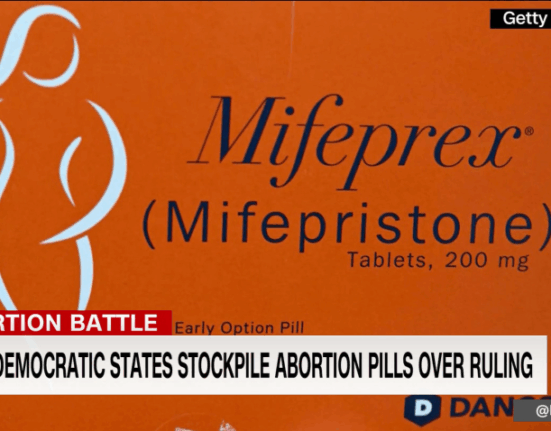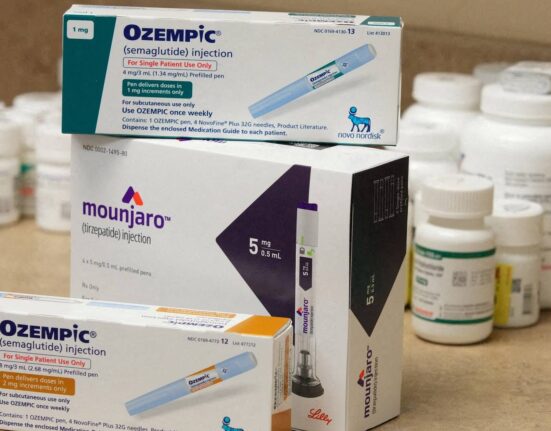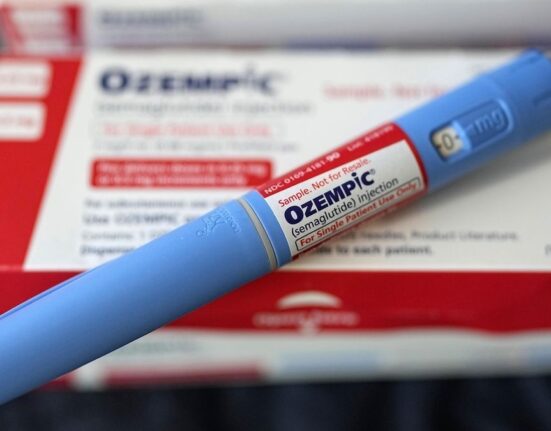Pondering the Potential Perils of Pesticides
Chemicals are all around us; they’re in plastics, food additives, and even the air we breathe. But one category of chemicals that has been under intense scrutiny lately is pesticides. These substances are not your run-of-the-mill compounds; as Melissa Perry, an environmental epidemiologist and dean of George Mason’s College of Public Health, points out, “They’re deliberately manufactured to kill things.”
Picture this: a farmer’s field buzzing with life as crops sway gently in the breeze. But beneath this picturesque scene lies a silent battle against weeds. Pesticides play the role of a deadly assassin, wiping out unwanted plants to make way for flourishing crops. However, this lethal design raises concerns about how these chemicals might impact human health.
A recent report from the Make America Healthy Again (MAHA) Commission chaired by Health Secretary Robert F. Kennedy Jr. calls for a deeper exploration into the effects of pesticides on our well-being. The report highlights the need to investigate if there should be limitations on their use due to potential health risks they pose.
Unveiling the Risks
Diving into research on pesticide risks reveals a complex tapestry of findings that raise red flags about their safety. Glyphosate and atrazine emerge as key players in this narrative—a duo frequently used by American farmers that have sparked heated debates within scientific circles.
Glyphosate, in particular, has been at the center of attention with studies linking its exposure to serious health issues like cancer and non-Hodgkin lymphoma in humans. While some organizations like the World Health Organization (WHO) have labeled glyphosate as “probably carcinogenic,” others such as the U.S. Environmental Protection Agency (EPA) maintain there is no clear evidence linking it to cancer.
Atrazine’s story is not any less concerning; researchers have found disturbing connections between atrazine exposure and reproductive disorders in animals, raising alarms about its potential impact on human health—especially among those living near farms where this pesticide is prevalent.
Expert Insights
Jason Richardson, a professor specializing in neurological diseases at Isakson Center for Neurological Disease Research at University of Georgia sheds light on how children exposed to organophosphates—a class of pesticides—are more prone to neurobehavioral problems like ADHD. These insights underscore the intricate relationship between pesticide exposure and neurological health.
Becky Langer-Curry from the National Corn Growers Association emphasizes trust in regulatory bodies like EPA that strive to ensure food safety standards are met rigorously despite conflicting research findings surrounding pesticide risks.
Navigating Safety Measures
As uncertainties loom over pesticide usage and its implications for public health, experts recommend practical steps individuals can take to minimize their exposure:
1. Awareness: Stay informed about pesticides used near your vicinity.
2. Water Filtration: Consider using high-quality water filters given how far pesticides can travel through water systems.
3. Organic Choices: Opt for organic produce whenever possible to reduce pesticide intake.
4. Thorough Cleaning: Wash fruits and vegetables diligently before consumption.
Maintaining a healthy lifestyle through exercise, stress management, and good sleep may also fortify your body against environmental toxins like pesticides—an additional layer of defense against their potential harms.
In conclusion, while debates swirl around pesticide safety and regulations continue evolving based on ongoing research efforts—being proactive about reducing exposure levels remains paramount for safeguarding personal well-being amidst these chemical conundrums plaguing our modern world.









Leave feedback about this